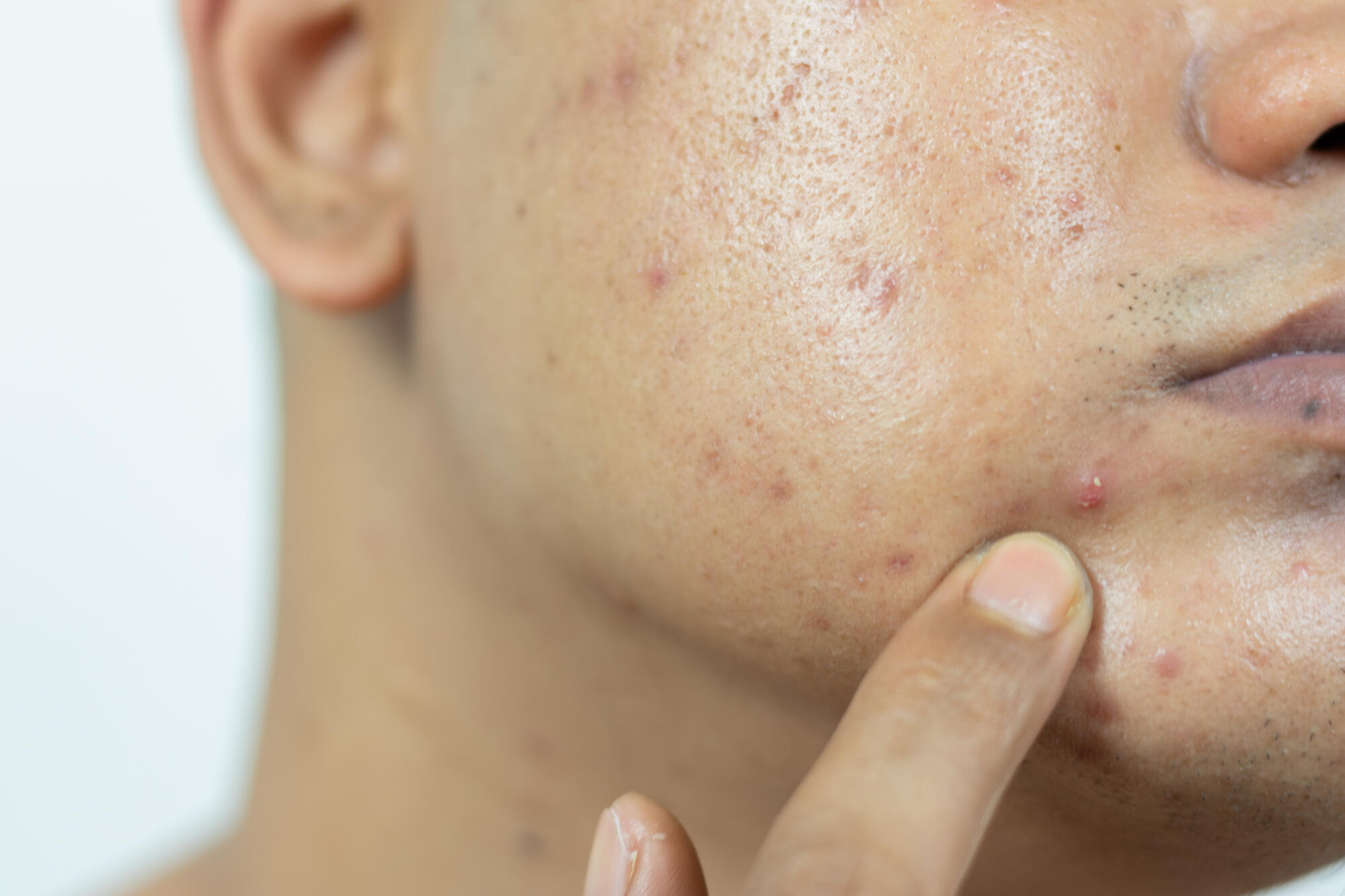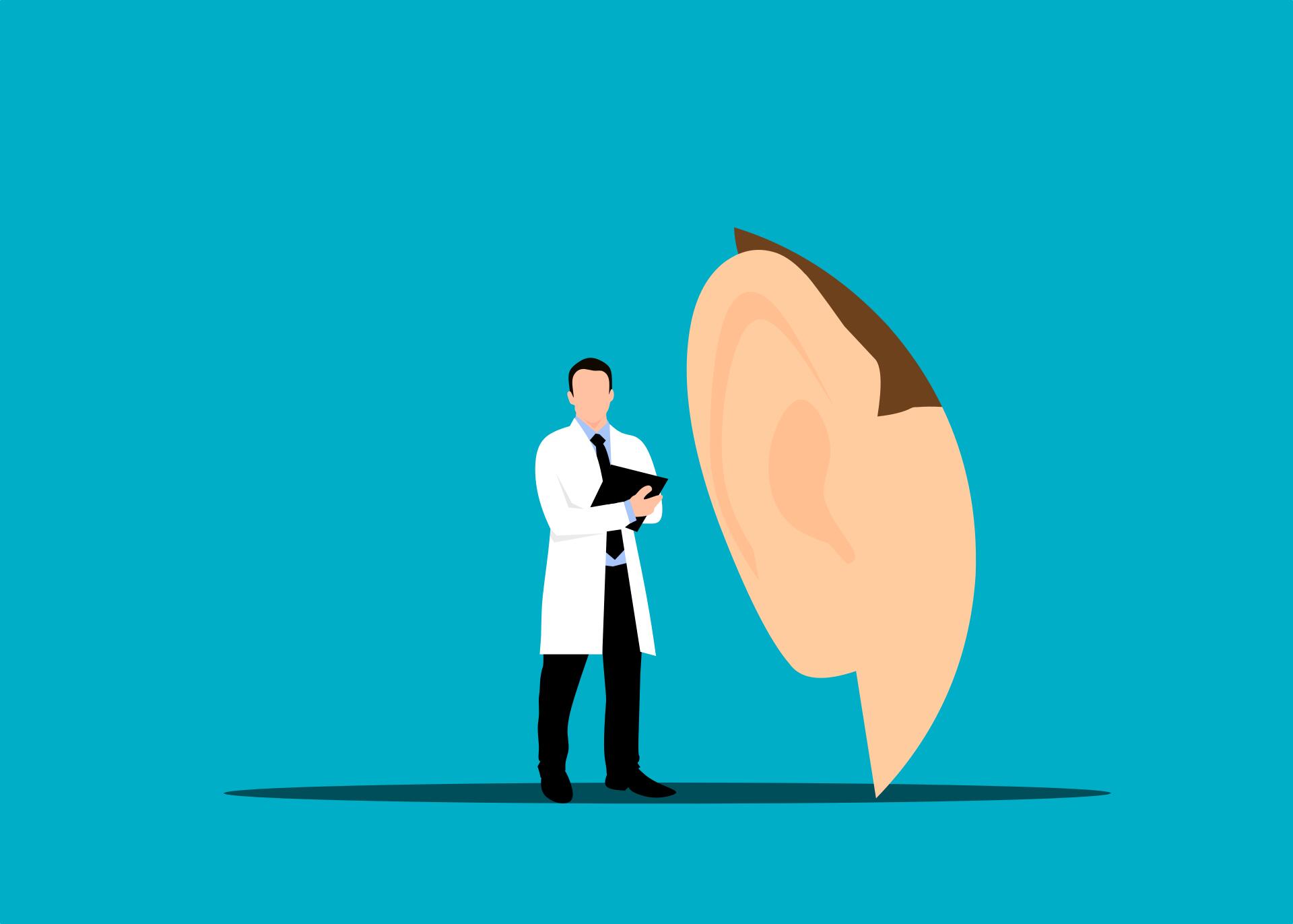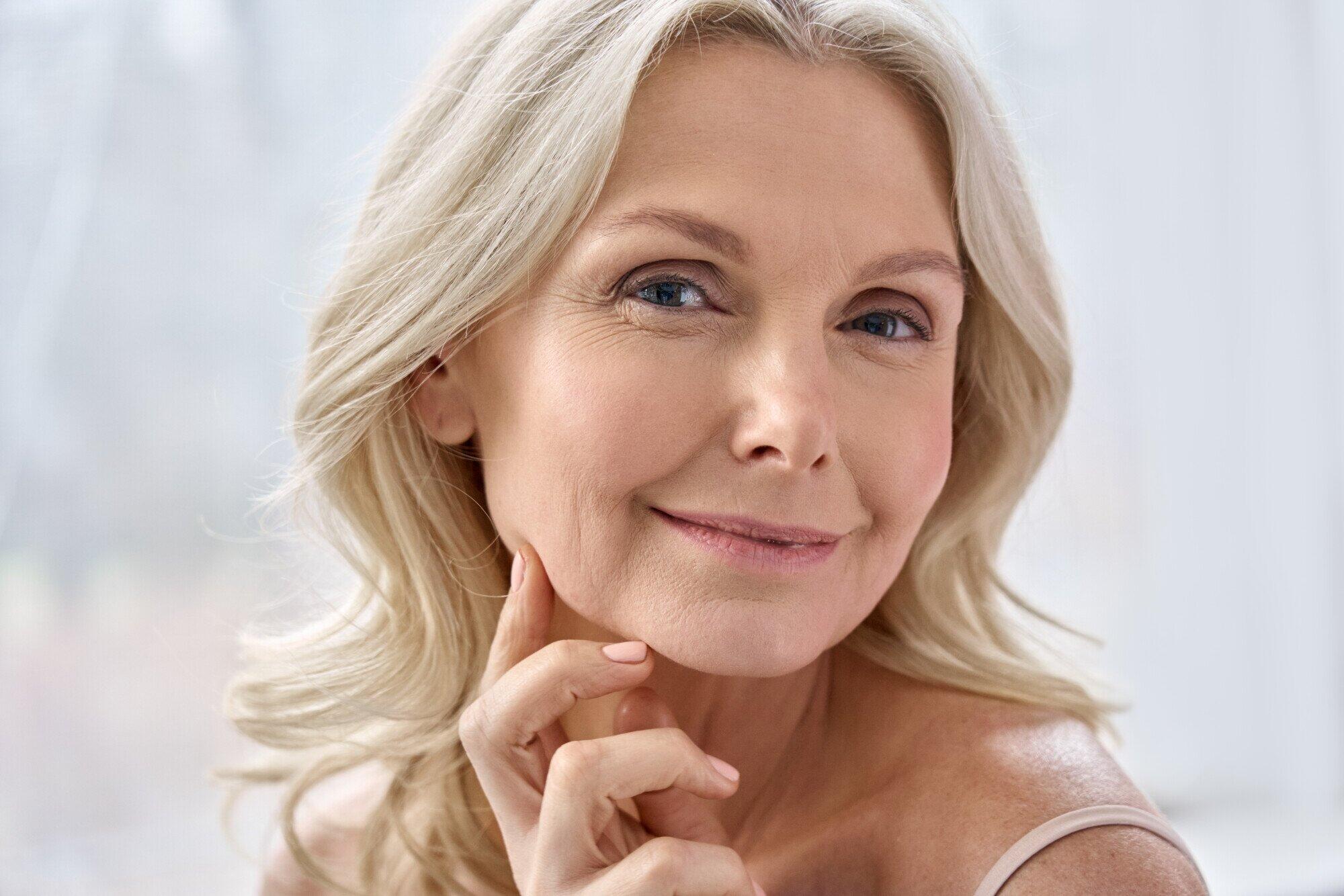
Jawline Acne Solutions: Clear Your Skin With Proven Treatments

Acne at any age can be a cause for concern and debilitating to self-esteem. But it’s particularly annoying when you are an adult and you think you are finally at the clear skin stage.
Acne on the jawline is a common skin issue that can be particularly stubborn and frustrating to manage. While acne can appear anywhere on the face, jawline acne often presents unique challenges due to its association with hormonal fluctuations, lifestyle factors, and skin care habits.
In this article, we’ll explore various jawline acne solutions, so you can adopt preventive measures, and implement effective treatments for hormonal acne.
Preventive Measures for Jawline Breakouts
Prevention is a crucial aspect of managing jawline acne. By incorporating healthy lifestyle habits and skin care practices, you can reduce the likelihood of breakouts. Here are some to consider.
Maintain a Balanced Diet
Opt for a diet rich in fruits, vegetables, lean proteins, and whole grains. Avoid foods high in sugar, refined carbohydrates, and dairy, which have been linked to increased acne risk in some studies.
Manage Stress
Implement stress-reducing techniques such as meditation, yoga, or regular exercise. These activities can help regulate hormones and reduce the risk of acne flare-ups.
Proper Skin Care Routine
Establish a consistent skincare routine that includes gentle cleansing, exfoliating, and moisturizing. Use non-comedogenic products that won’t clog pores. Avoid over-cleansing, which can strip the skin of its natural oils and cause it to produce more sebum, leading to acne.
Avoid Touching Your Face
Keep your hands away from your face to reduce the transfer of bacteria and dirt. Regularly clean your phone screen and change pillowcases to minimize exposure to acne-causing bacteria.
Stay Hydrated
Water is life and it’s important for many reasons, the least of it being clear and healthy skin.
Drinking plenty of water helps maintain overall skin health by flushing out toxins and keeping the skin hydrated. Hydrated skin is less likely to produce excess oil.
Proven Treatments for Jawline Acne
If preventive measures are not enough to keep jawline acne at bay, several effective treatments can help clear up your skin. It’s essential to choose the right treatment based on the severity of your acne and individual skin type.
We will look below, in order, at:
- Topical treatments
- Oral medications
- Professional treatments
Benzoyl Peroxide
This over-the-counter treatment helps kill acne-causing bacteria and reduce inflammation. It is available in various strengths and formulations, including gels, creams, and cleansers. Benzoyl peroxide can be drying, so it is essential to start with a lower concentration and gradually increase as needed.
Salicylic Acid
This beta-hydroxy acid (BHA) works by exfoliating the skin and unclogging pores. It is effective in treating mild to moderate acne and can be found in various products such as cleansers, toners, and spot treatments. Salicylic acid is generally well-tolerated but may cause dryness or irritation in some individuals.
Retinoids
These vitamin A derivatives are potent acne treatments that help prevent clogged pores, reduce inflammation, and promote skin cell turnover.
Prescription retinoids like tretinoin and adapalene are often more effective than over-the-counter versions. Retinoids can make the skin more sensitive to the sun, so it is crucial to use sunscreen daily when using these products.
Antibiotics
Oral antibiotics like doxycycline and minocycline can be prescribed for moderate to severe acne to reduce inflammation and bacteria. These medications are typically used for a limited time to avoid antibiotic resistance.
Hormonal Treatments
For women, hormonal therapies such as oral contraceptives or anti-androgen medications (like spironolactone) can help regulate hormone levels and reduce acne. These treatments are especially effective for acne that worsens around the menstrual cycle.
Isotretinoin
This powerful oral medication, also known as Accutane, is used for severe or cystic acne that does not respond to other treatments. Isotretinoin reduces oil production, unclogs pores, and reduces inflammation.
Due to its potential side effects, including severe dryness and the risk of birth defects, it is typically used as a last resort under close medical supervision.
Chemical Peels
Performed by dermatologists, chemical peels use acids like glycolic acid or salicylic acid to exfoliate the skin and reduce acne. These treatments can help improve skin texture, reduce acne scars, and prevent future breakouts.
Laser and Light Therapy
These treatments use specific wavelengths of light to target acne-causing bacteria, reduce inflammation, and promote skin healing. Blue light therapy and laser treatments can be effective for treating moderate to severe acne but may require multiple sessions.
Steroid Injections
For particularly painful or large cysts, a dermatologist may administer a corticosteroid injection to reduce inflammation and promote faster healing. This treatment provides quick relief but is generally reserved for severe cases.
Natural Remedies for Jawline Acne
In addition to conventional treatments, some individuals find relief using natural remedies. While these remedies may not be as scientifically validated as traditional treatments, they can provide additional support in managing jawline acne.
Tea Tree Oil
Known for its antibacterial and anti-inflammatory properties, tea tree oil can be applied as a spot treatment to reduce acne. It should be diluted with a carrier oil, like jojoba or coconut oil, to prevent skin irritation.
Aloe Vera
This soothing plant extract has anti-inflammatory properties that can help reduce redness and swelling associated with acne. Aloe vera can be applied directly to the skin in gel form.
Honey and Cinnamon Mask
Honey has natural antibacterial properties, and cinnamon has anti-inflammatory benefits. A mask made with these ingredients can be applied to the skin to help reduce acne and promote healing.
Acne on the Jawline – Don’t Live in Anxiety About Your Skin
Once you start getting acne on the jawline, you might feel like you are constantly worried about what other people see when they look at your face.
But with the acne treatments mentioned above, you can restore your beautiful skin and get back to an anxiety-free life, at least for your skin.
At Kiwi Drug, we have many popular acne drugs at competitive prices, so you can use them without fear of running out. Try Acnecide for your acne-prone skin.
Citation:
Nagy-Radványi, L., Balázs, V. L., Kocsis, B., Csikós, E., Ángyán, V. D., Szabó, P., Biró, V., Kocsis, M., & Farkas, Á. (2024a, May 3). Antibacterial activity of Hungarian varietal honeys against respiratory pathogens as a function of storage time. Nature News. https://www.nature.com/articles/s41598-024-60961-3
Related Posts


